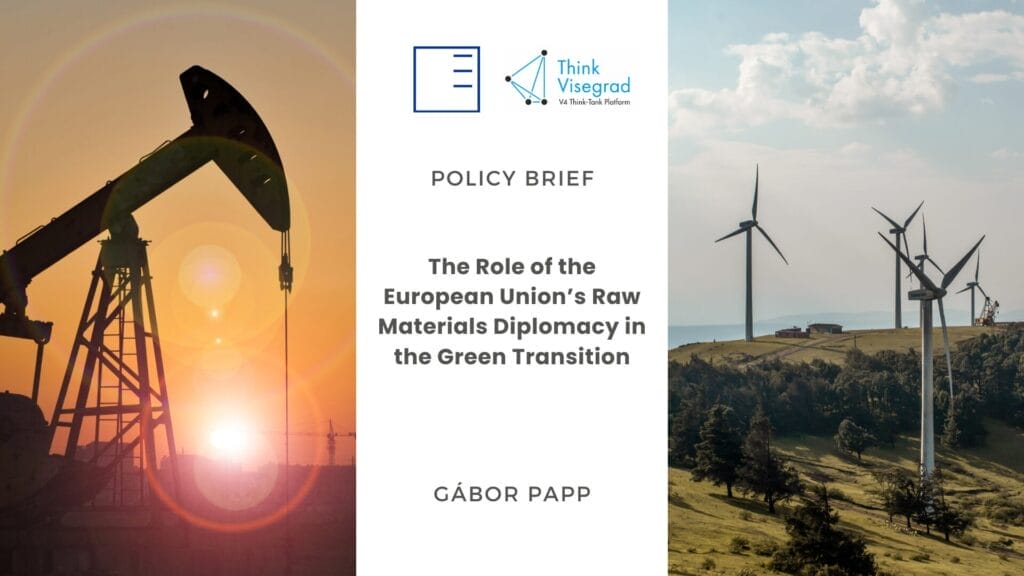
Policy Brief | The Role of the European Union's Raw Materials Diplomacy in the Green Transition
More info 27. 3. 2025
27. 3. 2025
In 2019, the green agenda became the flagship of the European Commission’s politics in the face of the European Green Deal. Five years later, the re-elected Ursula von der Leyen would like to keep this agenda as the number one priority for the next political cycle, expressing this goal also in her political guidelines. Meanwhile, major geopolitical events during the last couple of years have led to an unprecedented interest in the security of energy and raw material supplies. These topics started to gain significant attention during the Covid-19 pandemic, then surged further in the following energy crises, and finally peaked after the outbreak of the Russia-Ukraine war. Even though the question of energy and supply security has global implications and is being discussed globally, Europe was particularly affected by these aforementioned events, writes Gábor Papp, a Research Fellow at the Hungarian Institute of International Affairs, in his policy brief.
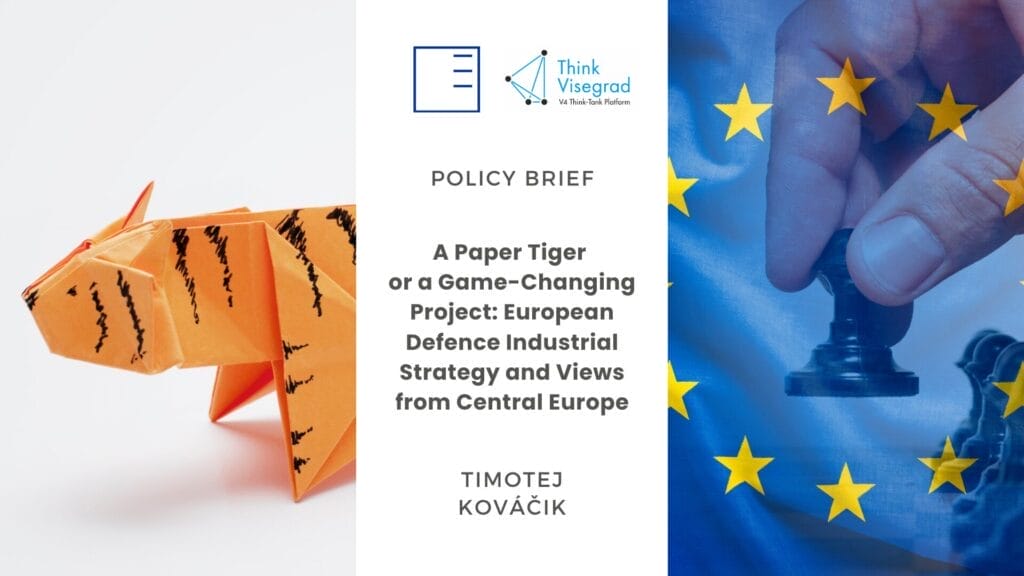
Policy Brief | A Paper Tiger or a Game-Changing Project: European Defence Industrial Strategy and Views from Central Europe
More info 20. 3. 2025
20. 3. 2025
The first-ever European Defence Industrial Strategy (EDIS) was introduced by the European Commission and the High Representative/Vice-President for Foreign Affairs and Security Policy (HR/VP) in March 2024, addressing key challenges in the European defence industry. The strategy aims to increase European defence industrial readiness, encourage Member States to invest in the European defence industry, and reinforce joint European defence procurement and ownership. EU Member States from Central Europe have played a crucial role in supporting Ukraine after the start of the Russian unprovoked and illegal full-scale invasion in February 2022. They also stressed the need to focus the EU's efforts on new initiatives in the field of defence and the defence industry, such as the Act in Support of Ammunition Production or enhancing the European Defence Fund. Writes Timotej Kováčik, Junior Researcher/Analyst focusing on security and defense issues, the EU's Common Foreign and Security Policy, and energy security at the Slovak Foreign Policy Association.
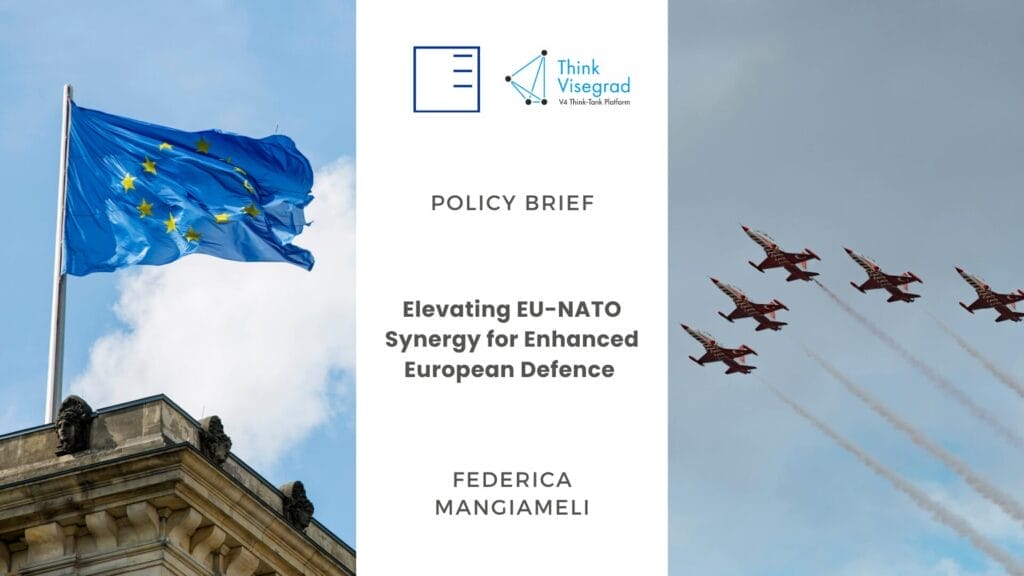
Policy Brief | Elevating EU-NATO Synergy for Enhanced European Defence
More info 20. 3. 2025
20. 3. 2025
For over two decades, there have been numerous attempts to define and frame the relations between the EU and NATO. Three joint declarations and significant steps ahead have been taken and yet, there is no clear vision of how these two organisations should work together more efficiently. The commonly accepted idea of cooperation sees “NATO pulling the strings and the EU pushing the funds” in accordance with their respective nature and scope. Is this unbalanced relation the most suitable strategy to counter current geopolitical threats? No. But can this cooperation be upgraded? Possibly, yet this appears to be easier said than done. Providing the EU with a coherent defence policy and a strong industrial base can be a great additional value for NATO and not just in the extreme case of a possible disengagement of the US. Writes Federica Mangiameli, Programme Manager and Policy Fellow for Defence and Security at GLOBSEC, in her Policy Paper.
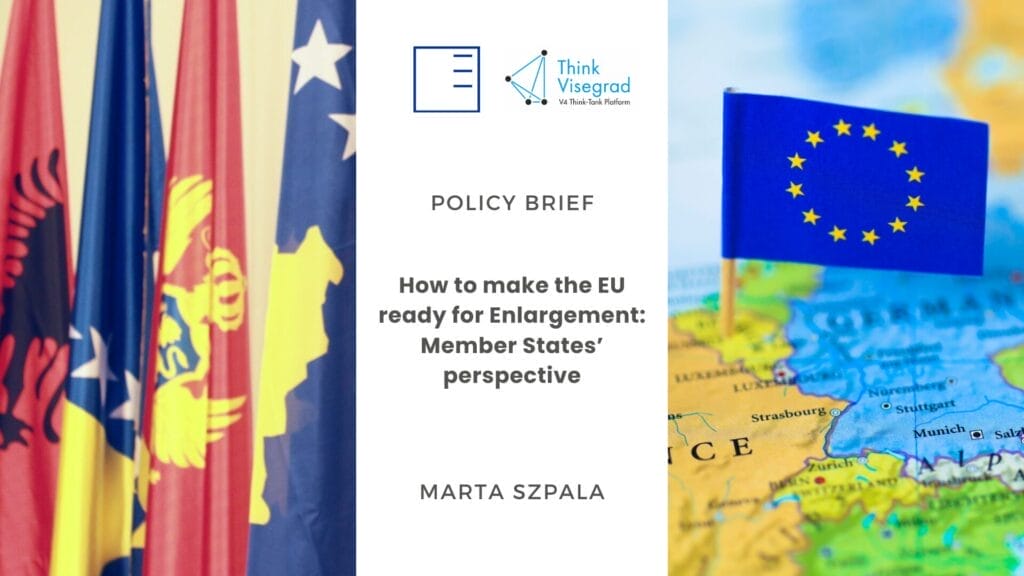
Policy Brief | How to make the EU ready for Enlargement: Member States’ perspective
More info 20. 3. 2025
20. 3. 2025
Russia’s full-scale aggression against Ukraine in February 2022 has brought EU enlargement back as a priority of the EU policy towards the neighbourhood and as a geopolitical tool to ensure peace, stability and prosperity on the entire continent. That resulted in the EU recognising the aspiration of the Associated Trio countries to join the EU and granting membership candidate status to Ukraine and Moldova in 2022 and to Georgia in 2023. In record time, the former two countries also started the EU accession process in June 2024. The accession process of the candidates from the Western Balkans also accelerated. Bosnia and Hercegovina was granted the candidacy status and accession talks with Albania and North Macedonia started in 2022. However, despite the general consensus that enlargement is a geopolitical necessity, the question posed by French President Emmanuel Macron in Bratislava in 2023 – How should we do it? – still remains unanswered. Writes Marta Szpala, a Senior Fellow in the Central European Department at the Center for Eastern Studies.
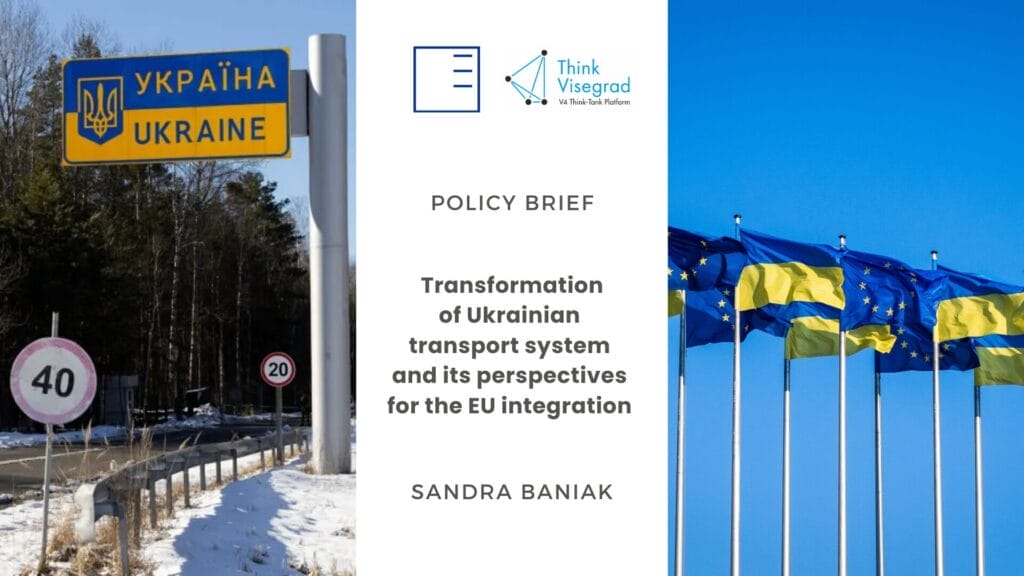
Policy Brief | Transformation of Ukrainian transport system and its perspectives for the EU integration
More info 20. 3. 2025
20. 3. 2025
Russia's full-scale invasion of Ukraine has led to significant changes in the Ukrainian transport sector due to disruptions in supply chains, cargo flows, and damage of the country’s infrastructure. The Ukrainian transport system has undergone significant transformations. The country's borders with Russia and Belarus and its airspace have been closed. In the first months of the full-scale war, the temporary blockage on the operation of Black Sea ports forced Ukraine to develop land transport corridors to the EU countries and neighboring Moldova to enable both export and import of goods needed for the economy. Despite the ongoing war, Ukraine has accelerated a long-planned reform of the country's transport system to adapt its infrastructure to the EU standards and integrate it with the European transport network. Writes Sandra Baniak, a Research Fellow at the Centre for Eastern Studies in the Connectivity and Regional Integration Programme.
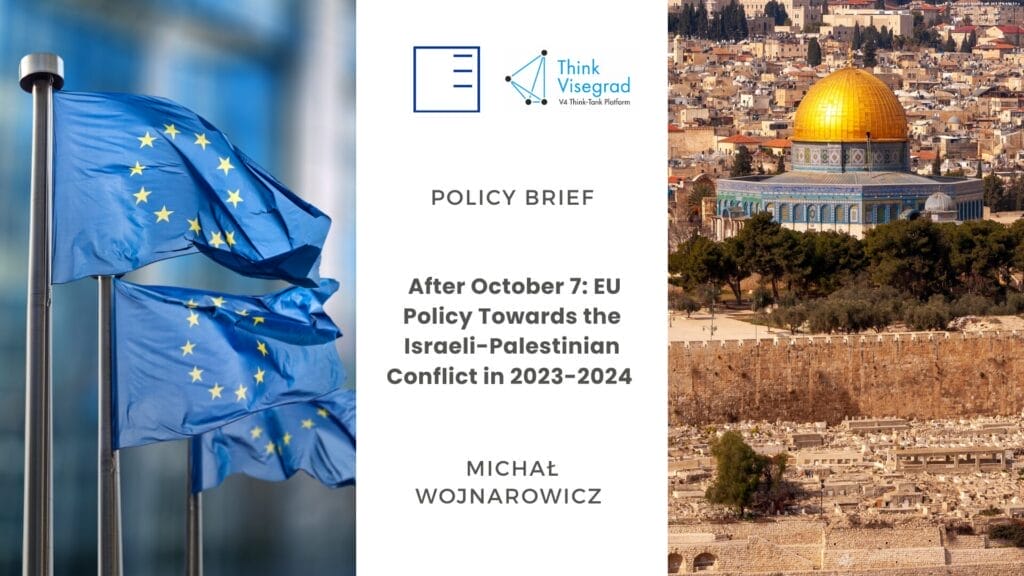
Policy Brief | After October 7: EU Policy Towards the Israeli-Palestinian Conflict in 2023-2024
More info 20. 3. 2025
20. 3. 2025
The war between Israel and Hezbollah, after a phase of full-scale confrontation, was halted by an armistice concluded at the end of 2024. The situation, however, remains far from stable, and the effects of the crisis are long-term. The surprise caused by the 7 October attack was shared by the European Union. The new iteration of the crisis in the Middle East represented another major political challenge for the European community, overlapping with those related to the Russia-Ukraine war, the migration crisis and other pressing issues requiring Union’s involvement. The EU's policies towards Israel and Palestine came under scrutiny, and the situation once again highlighted the extensive level of divisions among the EU states, affecting the potency and perception of its actions. Writes Michał Wojnarowicz, an Israel and Palestine analyst in the Middle East and Africa program at the Polish Institute of International Affairs, in his policy paper.
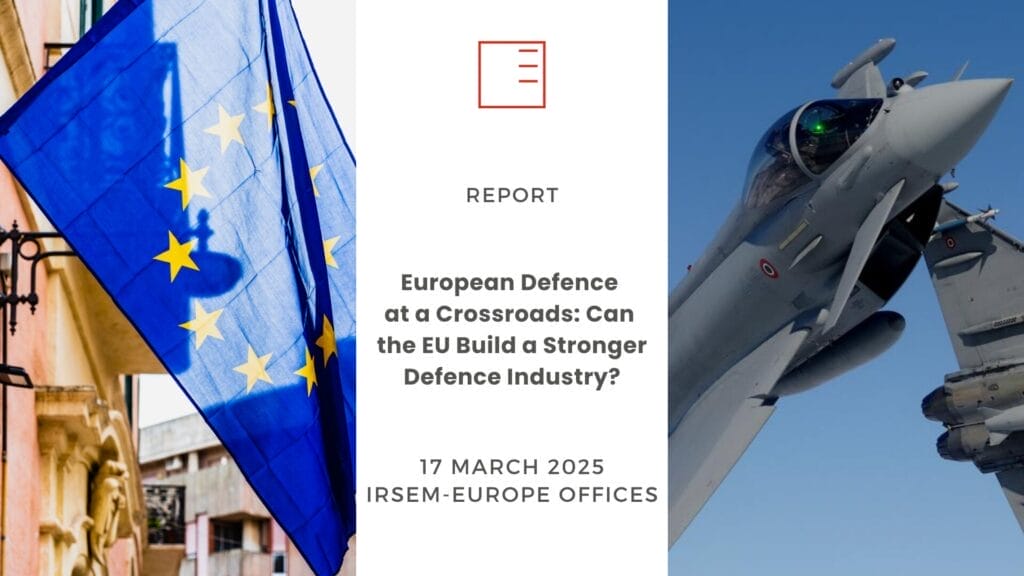
Report | European Defence at a Crossroads: Can the EU Build a Stronger Defence Industry?
More info 17. 3. 2025
17. 3. 2025
On March 17th, the Brussels Office of EUROPEUM representing the Think Visegrad Platform co-organised with IRSEM Europe (The Institute for Strategic Research at the Military School) a public event entitled ‘European Defence at a Crossroads: Can the EU Build a Stronger Defence Industry?’ The event took place at IRSEM-Europe Offices, 73 Rue de Namur, with a participation of thirtyseven leading experts, policymakers, and civil society actors. The aim of the discussion was to examine the fundamental transformation in Europe’s security architecture, and to consider the challenges and opportunities in developing a more independent European defence and security framework.
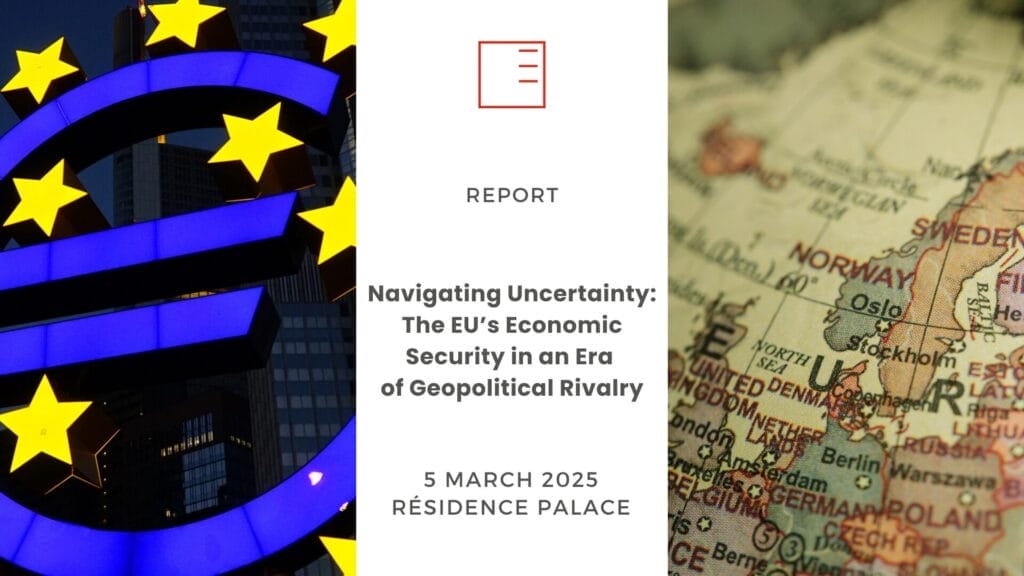
Report | Navigating Uncertainty: The EU’s Economic Security in an Era of Geopolitical Rivalry
More info 5. 3. 2025
5. 3. 2025
On March 5th, the Brussels Office of EUROPEUM representing the Think Visegrad Platform co-organised with SWP Brussels – Stiftung Wissenchaft und Politik organised a roundtable discussion entitled, Navigating Uncertainty: The EU’s Economic Security in an Era of Geopolitical Rivalry. The event took place at the Résidence Palace, Rue de la Loi, with a participation of 16 experts. The aim of the discussion was to explore how the new European Commission can develop a cohesive and proactive economic security strategy to enhance the EU's resilience and competitiveness amidst intensifying geopolitical and economic challenges.
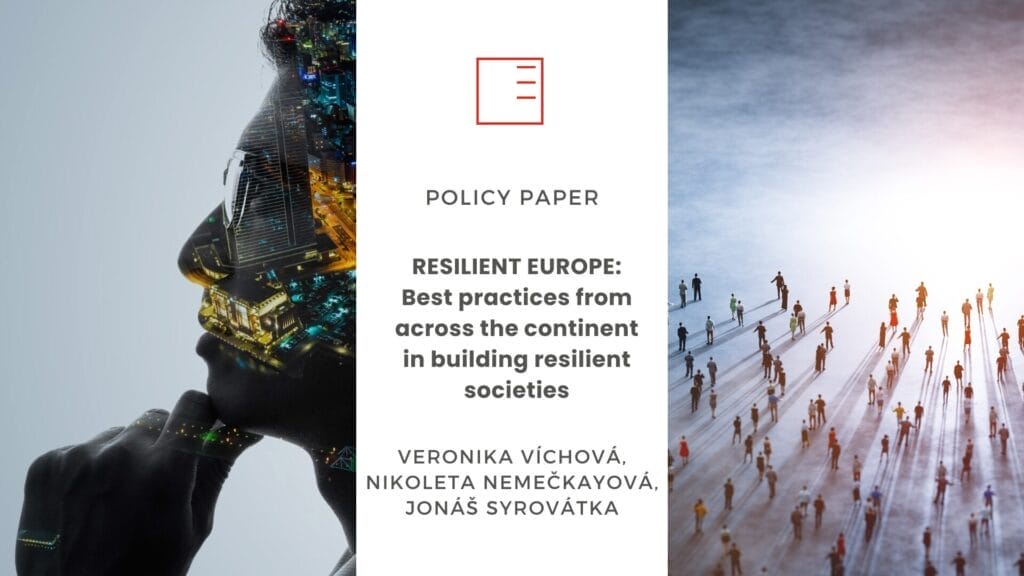
Policy Paper | Resilient Europe: Best Practices from Across the Continent in Building Resilient Societies
More info 31. 12. 2024
31. 12. 2024
The "Resilient Europe" conference, held in Prague in October 2024, brought together leading experts from across Europe to share their experiences and best practices in dealing with threats such as Russian disinformation, hybrid warfare tactics that seek to destabilize democratic institutions and undermine public trust. This policy paper summarises the main findings of the conference into three main categories: hybrid threats, information manipulation in digital space and strategic communications. These categories encompass the wide range of measures taken by European states and institutions to ensure democratic resilience, and the paper further identifies the most pressing challenges and opportunities for future efforts. Summarised by Jonáš Syrovátka of the EUROPEUM Institute, Veronika Víchová of the Centre for an Informed Society and Nikoleta Nemečkayová of the Association for International Affairs.
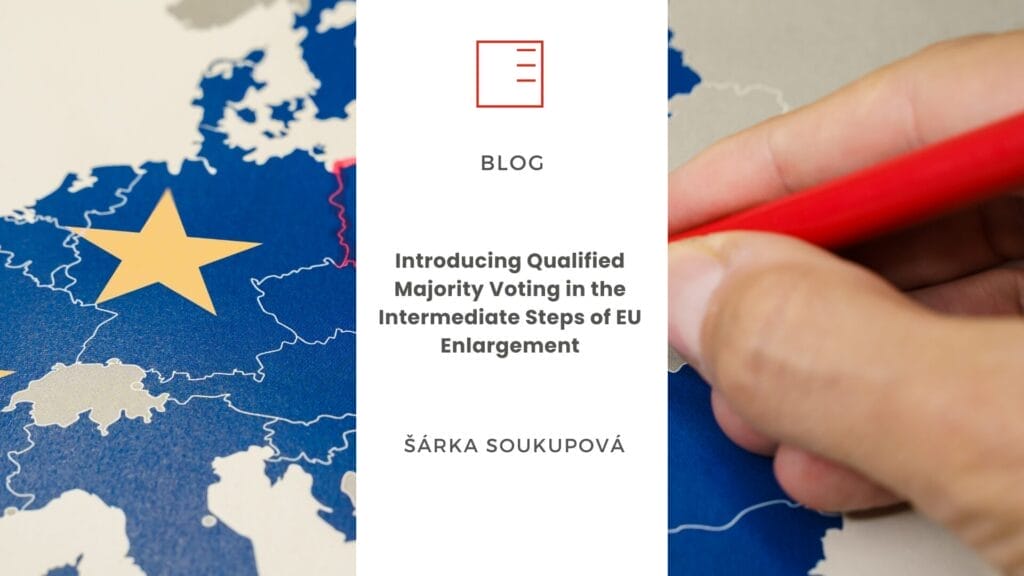
Blog | Introducing Qualified Majority Voting in the Intermediate Steps of EU Enlargement
More info 31. 12. 2024
31. 12. 2024
Since Russia invaded Ukraine in February 2022, European Union (EU) enlargement has gained new momentum, bringing the topic to the forefront of political discussions. This renewed focus highlights the need to strengthen the EU’s geopolitical position and security through enlargement. However, significant challenges remain, particularly regarding the effectiveness and credibility of the current accession process. EUROPEUM Institute intern Šárka Soukupová writes in her blog.
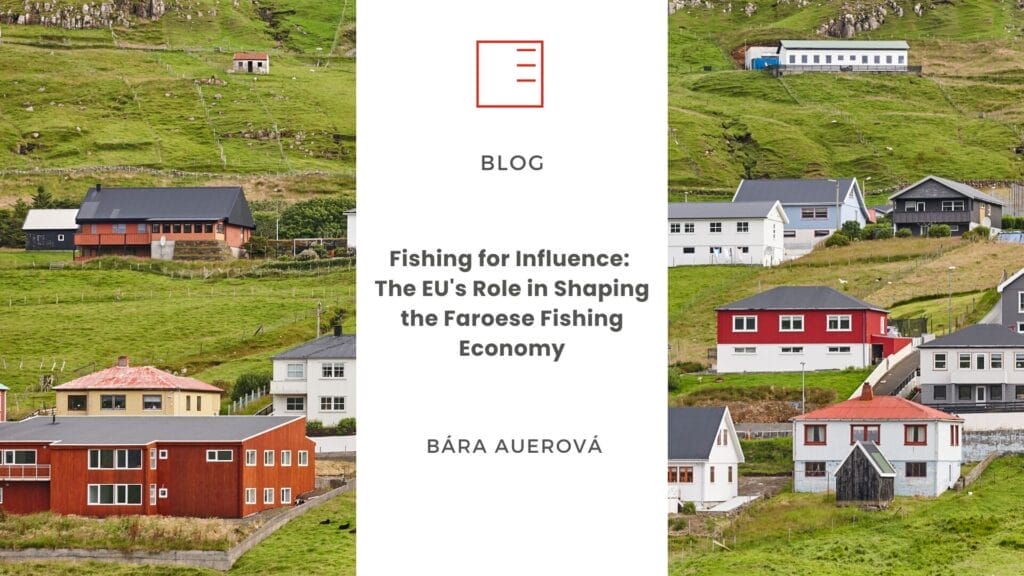
Blog | Fishing for Influence: The EU's Role in Shaping the Faroese Fishing Economy
More info 28. 12. 2024
28. 12. 2024
The Faroe Islands, located in the North Atlantic, have long relied on fishing as the corner-stone of their economy, shaping their economic and social identity. However, the decline in em-ployment in this sector in recent decades, coupled with the global problems of overfishing, un-derlines the fragility of this dependence. Writes intern Bára Auerová in her blog.
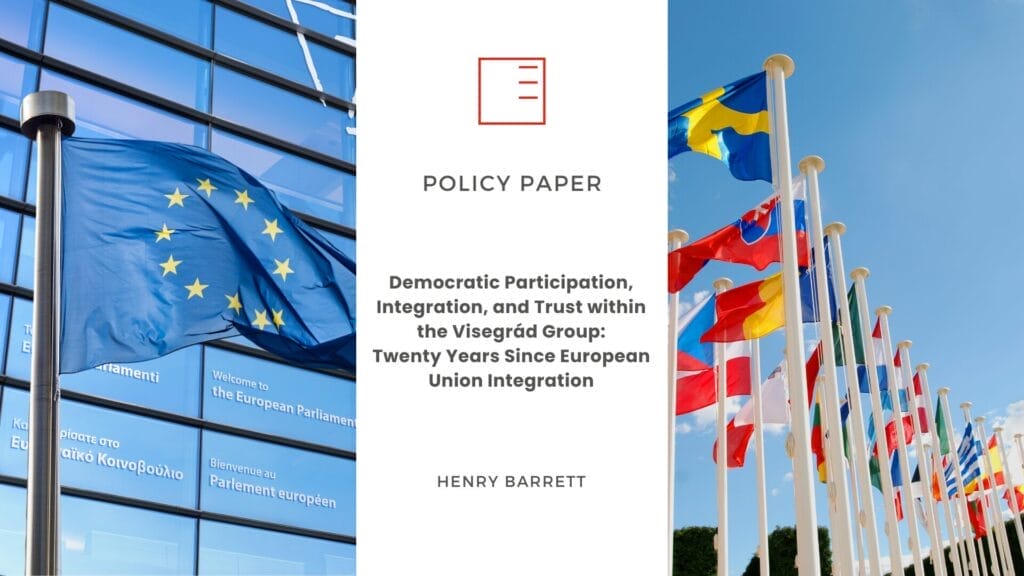
Policy Paper | Democratic Participation, Integration, and Trust within the Visegrád Group: Twenty Years Since European Union Integration
More info 23. 12. 2024
23. 12. 2024
This paper contextualizes and analyzes data pertaining to democratic participation, institutional trust, and integration of the Visegrád Group—Czechia, Hungary, Poland, and Slovakia—into the European Union twenty years since accession. This paper explores the history and functionality of the Visegrád Group as a political collective both before and during EU membership. A representative survey across the four countries provides substantive insights into the current state of EU cohesion during a critical period for the community. Writes Henry Barrett in his Policy Paper.